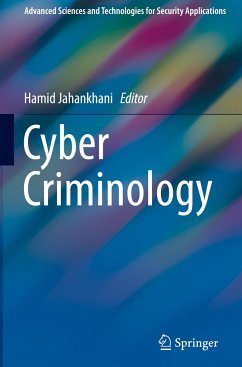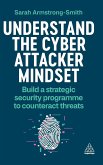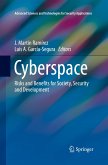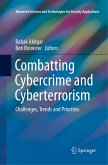This book provides a comprehensive overview of the current and emerging challenges of cyber criminology, victimization and profiling. It is a compilation of the outcomes of the collaboration between researchers and practitioners in the cyber criminology field, IT law and security field.
As Governments, corporations, security firms, and individuals look to tomorrow's cyber security challenges, this book provides a reference point for experts and forward-thinking analysts at a time when the debate over how we plan for the cyber-security of the future has become a major concern.
Many criminological perspectives define crime in terms of social, cultural and material characteristics, and view crimes as taking place at a specific geographic location. This definition has allowed crime to be characterised, and crime prevention, mapping and measurement methods to be tailored to specific target audiences. However, this characterisation cannot be carried over to cybercrime, because the environment in which such crime is committed cannot be pinpointed to a geographical location, or distinctive social or cultural groups.
Due to the rapid changes in technology, cyber criminals' behaviour has become dynamic, making it necessary to reclassify the typology being currently used. Essentially, cyber criminals' behaviour is evolving over time as they learn from their actions and others' experiences, and enhance their skills. The offender signature, which is a repetitive ritualistic behaviour that offenders often display at the crime scene, provides law enforcement agencies an appropriate profiling tool and offers investigators the opportunity to understand the motivations that perpetrate such crimes. This has helped researchers classify the type of perpetrator being sought.
This book offers readers insights into the psychology of cyber criminals, and understanding and analysing their motives and the methodologies they adopt. With an understandingof these motives, researchers, governments and practitioners can take effective measures to tackle cybercrime and reduce victimization.
As Governments, corporations, security firms, and individuals look to tomorrow's cyber security challenges, this book provides a reference point for experts and forward-thinking analysts at a time when the debate over how we plan for the cyber-security of the future has become a major concern.
Many criminological perspectives define crime in terms of social, cultural and material characteristics, and view crimes as taking place at a specific geographic location. This definition has allowed crime to be characterised, and crime prevention, mapping and measurement methods to be tailored to specific target audiences. However, this characterisation cannot be carried over to cybercrime, because the environment in which such crime is committed cannot be pinpointed to a geographical location, or distinctive social or cultural groups.
Due to the rapid changes in technology, cyber criminals' behaviour has become dynamic, making it necessary to reclassify the typology being currently used. Essentially, cyber criminals' behaviour is evolving over time as they learn from their actions and others' experiences, and enhance their skills. The offender signature, which is a repetitive ritualistic behaviour that offenders often display at the crime scene, provides law enforcement agencies an appropriate profiling tool and offers investigators the opportunity to understand the motivations that perpetrate such crimes. This has helped researchers classify the type of perpetrator being sought.
This book offers readers insights into the psychology of cyber criminals, and understanding and analysing their motives and the methodologies they adopt. With an understandingof these motives, researchers, governments and practitioners can take effective measures to tackle cybercrime and reduce victimization.








